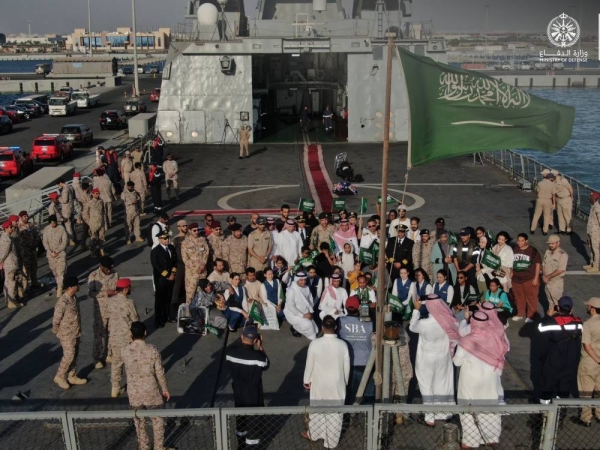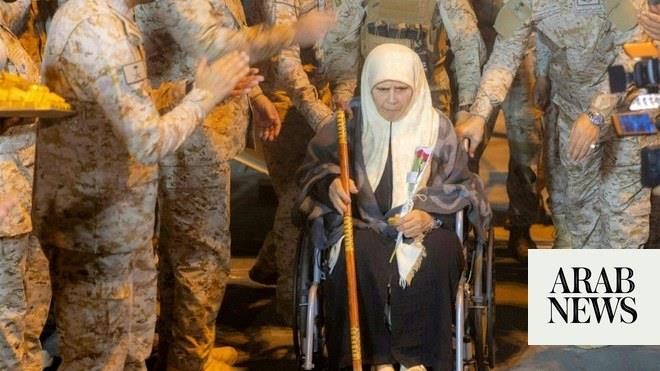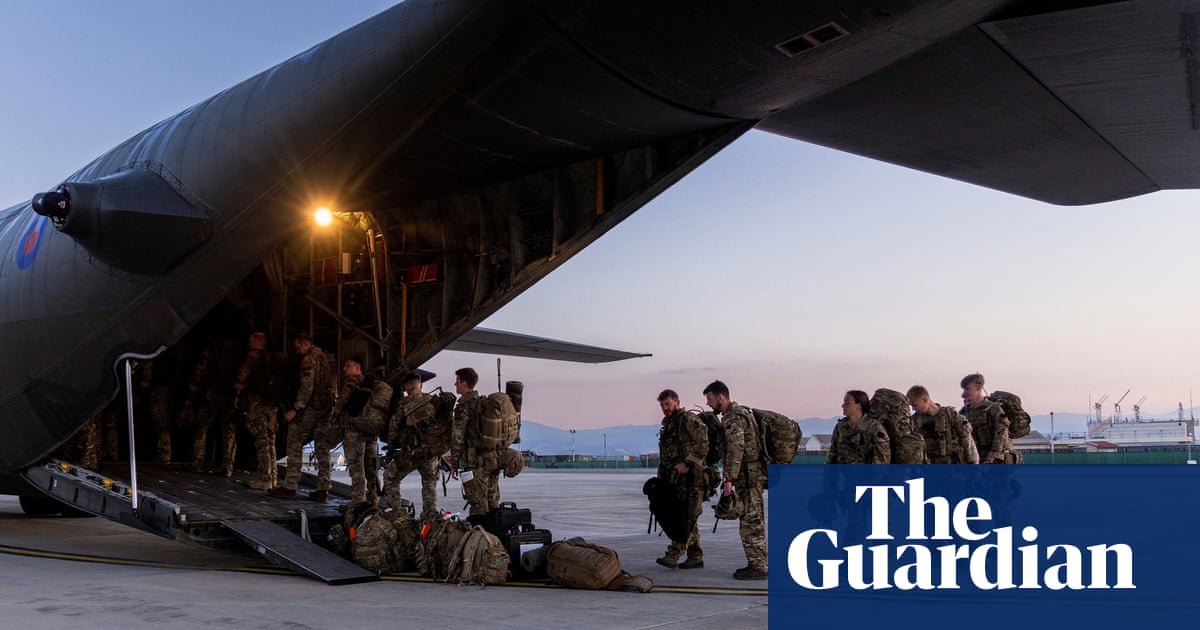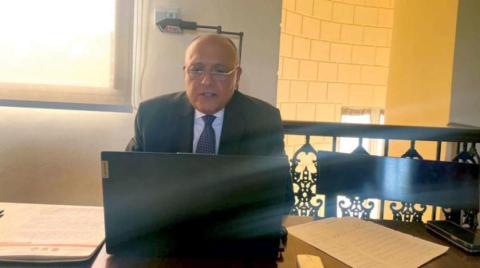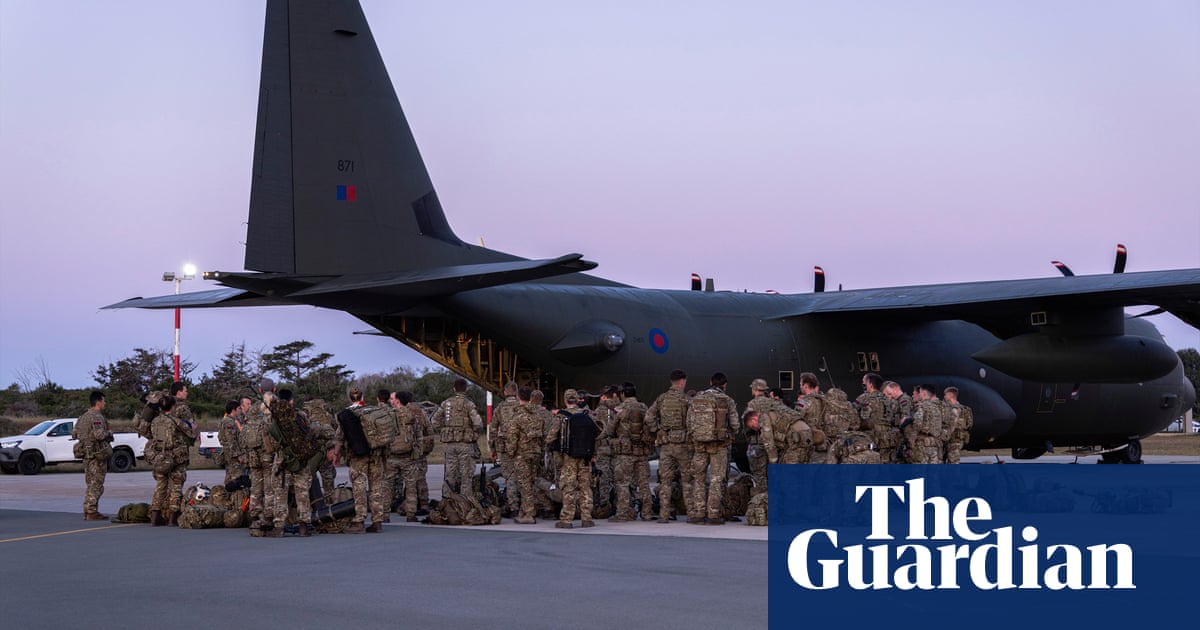
A first British evacuation flight from Sudan has landed in Cyprus after Germany gave permission for the UK to fly a plane from an airfield north of Khartoum it has been controlling to coordinate its own rescue operations.
Two more RAF flights were expected to leave overnight, although the numbers airlifted to safety were far fewer than the 2,000-plus Britons believed to have been trapped in the country when civil war broke out nearly two weeks ago.
The first flight landed in Larnaca with about 40 people onboard, according to Cyprus’s foreign ministry, and the total number initially forecast to be extracted was about 260 in an evacuation that began as Germany and France were completing their own diplomatic and civilian rescues.
Rishi Sunak, the British prime minister, said the first flight had been carrying everybody eligible who had travelled to the Wadi Seidna airbase, about 15 miles north of Khartoum, and sought to defend himself against accusations that the UK had been behind other countries in a similar position.
“The security situation on the ground in Sudan is complicated, it is volatile and we wanted to make sure we could put in place processes that are going to work for people, that are going to be safe and effective,” Sunak said.
He later added that many more flights carrying British nationals will leave Sudan into Wedneday, and that “over a thousand” UK citizens in Sudan have been contacted about extraction plans, with officials from the Foreign, Commonwealth and Development Office speaking to hundreds already.
Britain had decided to launch an evacuation of Britons and their immediate families overnight after the announcement of a US-brokered 72-hour ceasefire in the civil war that suddenly broke out on 15 April. But they were told they had to make their own way to the airbase, despite the chaos and risk of a flareup in the violence.
The UK had been criticised for first rescuing only its diplomats from the embassy on Sunday, and then appearing relatively slow in rescuing other citizens compared with Germany and France.
However, Sunak said he was pleased the UK was “one of the first countries to safely evacuate our diplomats and their families” and added it was right they were prioritised because “they were being specifically targeted” in early fighting.
Between Sunday evening and Tuesday lunchtime Germany had evacuated 490 people from 30 countries in five flights from the Wadi Seidna airbase. A final German flight was due out on Tuesday evening.
Ben Wallace, the UK defence secretary, said an emergency processing centre at the airbase, protected by 120 troops, had been set up by mid-morning.
At that point he said RAF flights out would start “if and when the Germans leave”.
However, the first flight took off with Germany still running air traffic control, although preparations were in hand for UK forces to take it over.
France had also been using the airbase to conduct its own rescue operation via Djibouti. It said it had rescued 538 people from 41 countries, operating nine round-trip flights and 10 convoys from Khartoum to ferry people to the airbase.
The US flew out diplomatic staff by helicopter on Saturday, but the Biden administration insists it had no plans to evacuate other US nationals or US-affiliated civilians.
“We are providing the best possible advice we can about conditions, safety and security so that they can make their own decisions with the most information possible,” state department spokesman Vedant Patel said on Tuesday, adding: “It is not standard practice for the US to send the US military into war zones to extract US citizens.”
Asked about the other countries evacuating their nationals, Patel replied: “Each country is going to make its own sovereign decision based on their own interpretation of the security apparatus and the security situation on the ground.”
A second UK evacuation point was likely to be set up at Port Sudan, on the country’s Red Sea coast, about 500 miles north-east of Khartoum. Britain had deployed a contingent of Royal Marines already, Wallace said, and he said he had directed HMS Lancaster, a frigate, to sail there.
The idea was, he added, to keep an alternative evacuation point “up our sleeve for contingencies” because “if the airbase were to close it would be one of the few options left”. Many people have made the 35-hour road journey to the city from Khartoum, scene of much of the fiercest fighting so far.
At 1pm UK time, the Foreign Office told Britons and their immediate families to head to the airfield, supplying its GPS coordinates on social media, although with phone and internet connection intermittent it was unclear how widely the message was received.
Andrew Mitchell, the minister for development and Africa, said the UK evacuation operation at the airfield was working but spasmodic. He told the foreign affairs select committee he did not know of any examples of people contacted to come to the airport being unable to make it and said those who have arrived “have come under their own steam”.
He insisted it had been right not to try to extract British nationals earlier as it was preferable to wait for a ceasefire. He said it had been necessary to evacuate British diplomats as they were in extreme danger. He rejected suggestions that the UK could have foreseen the crisis.
Aid agencies operating in Sudan said the 72-hour ceasefire between the army and RSF paramilitaries appeared to be largely holding, but many Britons in the country said they were concerned about the risks of making the journey.
Those being rescued have to fly a four- to five-hour journey to Cyprus before being sent on fresh planes to the UK. Only British passport holders are eligible for evacuation, plus their spouses and children under 18, as long as they too have the right to enter the UK.
Priority would be given to family groups with children, elderly people and individuals with medical conditions, the Foreign Office added.





